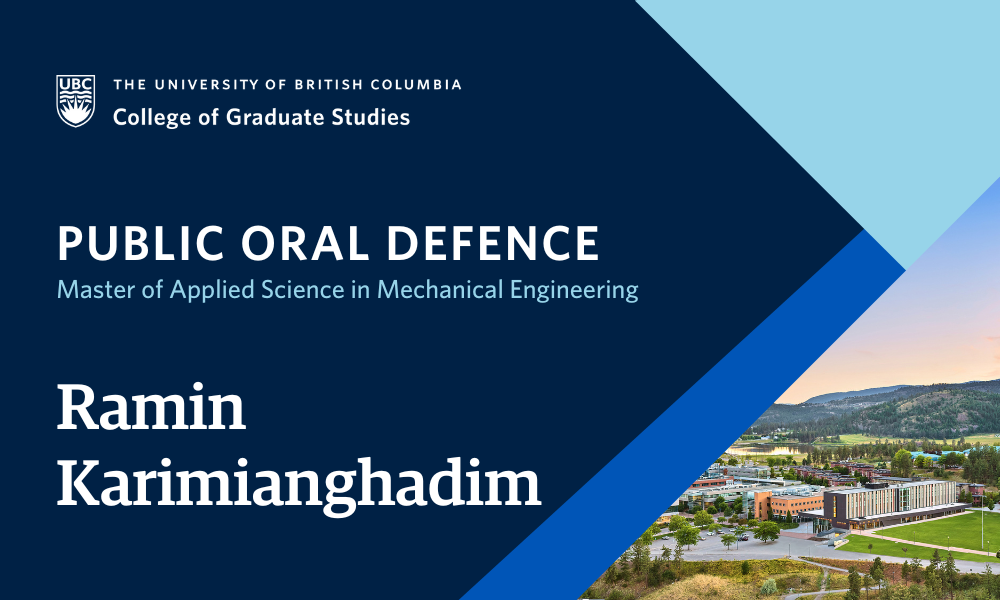
- This event has passed.
Thesis Defence: Long-Term Outcomes of Antibiotic Treatments in Fecal Microbiota Transplantation Donors on Microbiota Composition, Function, and Antibiotic Resistance Genes
March 28 at 9:00 am - 1:00 pm

Ramin Karimianghadim, supervised by Dr. Sepideh Pakpour, will defend their thesis titled “Long-Term Outcomes of Antibiotic Treatments in Fecal Microbiota Transplantation Donors on Microbiota Composition, Function, and Antibiotic Resistance Genes” in partial fulfillment of the requirements for the degree of Master of Applied Science in Mechanical Engineering.
An abstract for Ramin Karimianghadim’s thesis is included below.
Defences are open to all members of the campus community as well as the general public. Please email sepideh.pakpour@ubc.ca to receive the Zoom link for this defence.
ABSTRACT
Fecal Microbiota Transplantation (FMT) serves as a primary treatment option for various diseases, such as recurrent Clostridioides difficile Infection (rCDI) and Inflammatory Bowel Disease (IBD). Its fundamental purpose is to restore equilibrium within the gut microbiota. FMT relies on donor samples that are carefully screened for suitability. The selection of an appropriate donor sample is pivotal, as it can either successfully reinstate a balanced gut flora, aiding in treatment, or potentially introduce harmful pathogens.
Amidst these considerations, a substantial knowledge gap exists concerning the consequences of antibiotic consumption by potential donors. Specifically, the effects of antibiotics on donor samples and their duration of impact, as well as the timeframe for reusing the same donors for FMT after antibiotic exposure, remain uncertain. This research endeavor aims to bridge this knowledge gap by investigating donor samples that have been exposed to antibiotics, both during and after their antibiotic treatment.
In this longitudinal study, samples are collected from three distinct donors. Utilizing a high-throughput metagenomics sequencing approach, I assessed the enduring effects of antibiotics on bacterial diversity, community composition, microbial functions, and the gut phageome. My findings reveal that antibiotic consumption exerts substantial effects on the bacterial community at both the species and strain levels, persisting even a year after antibiotic discontinuation. This impact extends to essential bacteria crucial for the success of FMT, including Akkermansia muciniphila, linked to CDI disease, and other highly engrafting bacterial species associated with various diseases, including rCDI and IBD. Moreover, antibiotics affect the functionality of the bacterial community, mainly affecting housekeeping genes. However, the relationship between these affected functional changes and FMT success remains unexplored.
I also observed only minimal changes in viral populations, with their relevance to FMT success remaining unexplored. Additionally, no significant increase was found in the development of serious Antibiotic Resistance Genes (ARGs), which contrasts with my initial expectations of major shifts in ARGs.
This study underscores the notion that donors who have previously consumed antibiotics may not be ideal candidates for subsequent FMT procedures and applications due to the changes occurring in their gut microbiota, which extend beyond alterations in ARGs. While this impacts the efficacy of FMT, it’s crucial to note that safety concerns regarding the accumulation of ARGs do not seem to be substantiated by findings of this study.